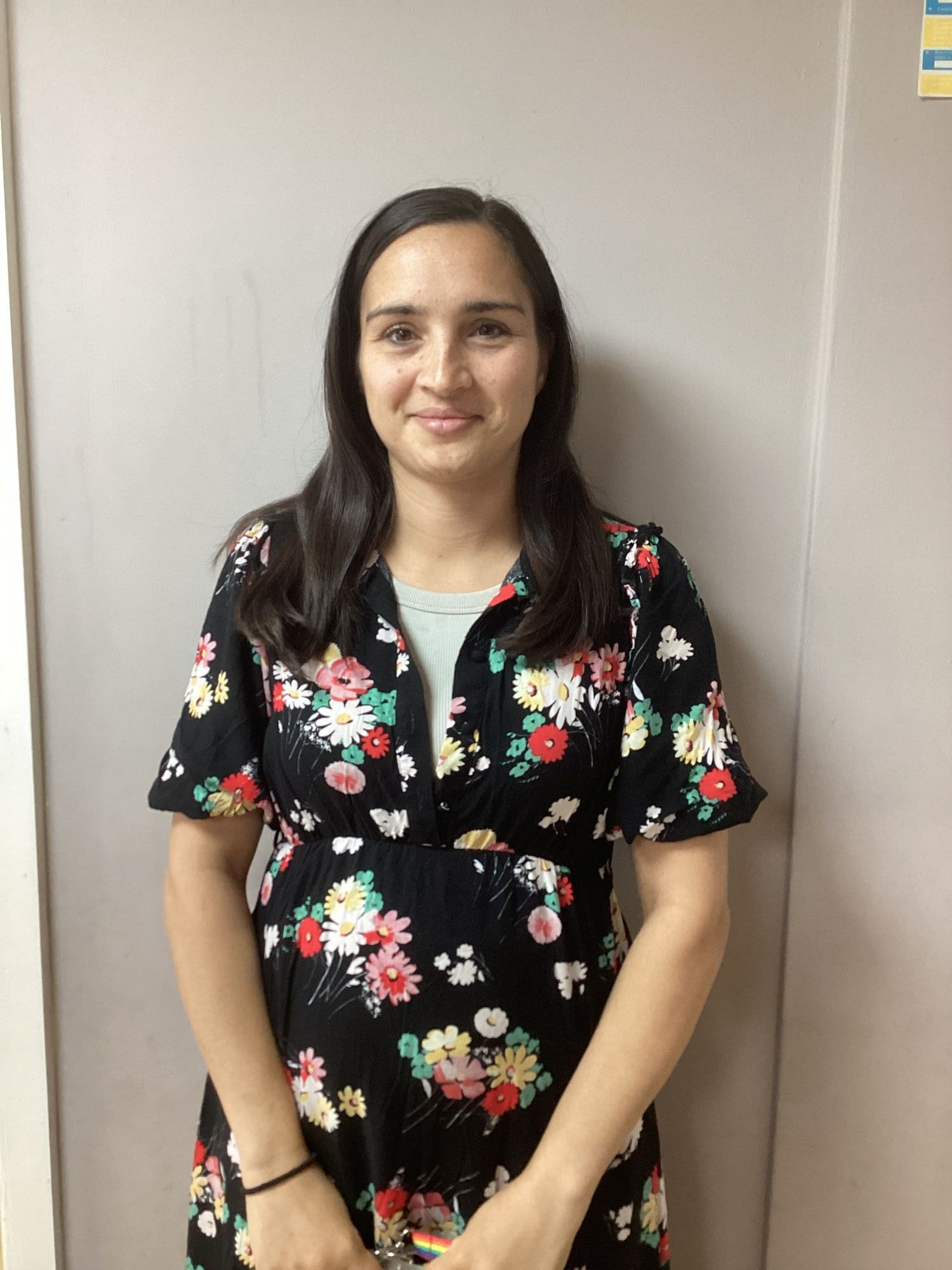Class 1
Welcome to Class 1
Mrs Stubbs
Class 1 Teacher
Monday - Wednesday
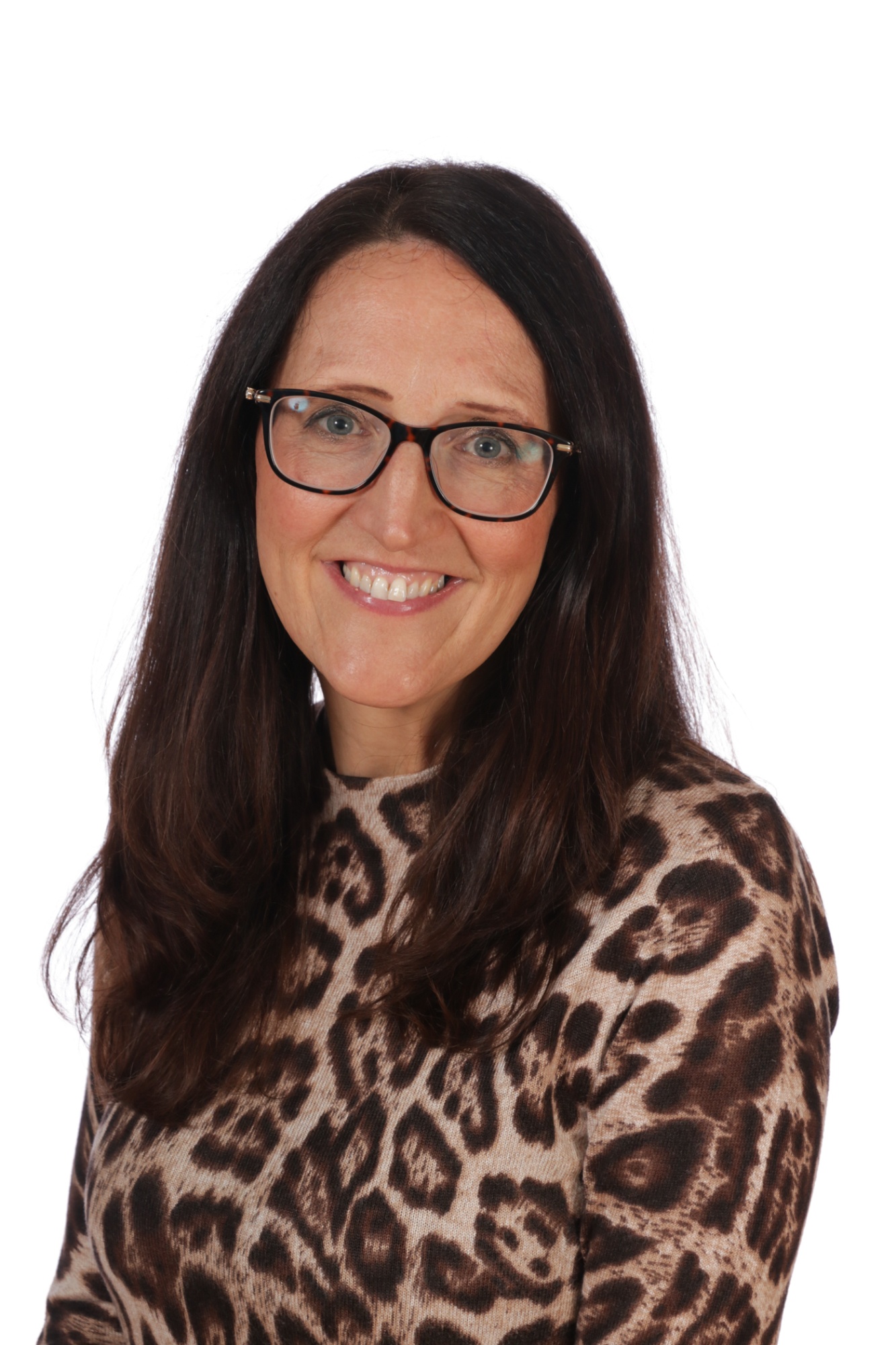
Mrs Crook
Class 1 Teacher
Thursday - Friday
Nursery and Reception

It is a pleasure to support the youngest children at Bickerstaffe CE School and Nursery. We take pride in fostering their curiosity, creativity, and confidence in a warm and nurturing environment. Each day is filled with opportunities for discovery, building great friendships, and laying the foundation for a lifelong love of learning.
Useful info for the school week:
- Mrs Stubbs and Mrs Aisbitt are in class on Monday, Tuesday and Wednesdays.
- Mrs Crook and Mrs Dobson are in class on Thursday and Fridays.
- Mr Bakaya is in class Monday - Friday.
- Homework bags to be sent in on Tuesdays. Homework will be sent out on Wednesdays.
- Please keep reading diaries in homework bags so we can see who is reading at home and ensure they receive their rewards.
- PE is on Tuesdays and Fridays.
- Spanish is on Monday afternoons.
- The Library bus comes to school every three weeks on a Friday. Each child gets to visit the bus to borrow a book.
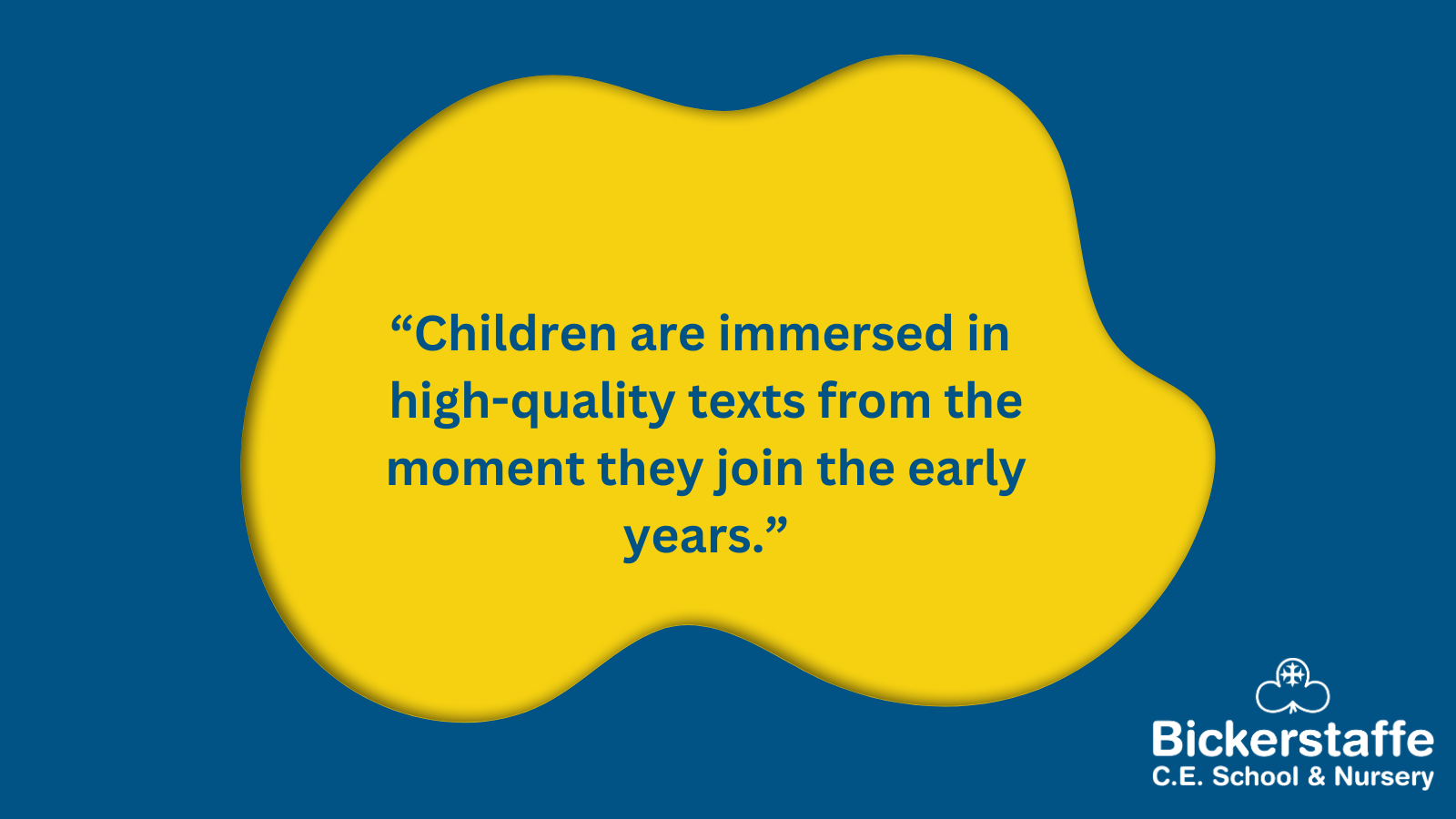
Home Learning
To help nurture a lifelong love of reading, nursery children will have the opportunity to choose books from our class and school library to share with families at home.
For our reception children, we ask families to continue sharing books at home. This can be any kind of book, including non-fiction. As they begin to learn the names and sounds of letters, we will send home books for you to read with your child. These books will be linked to their phonic ability, to provide the best support in their reading journey.
We will also send home a sheet of homework each week. This may be reading, writing or maths for reception children, and for our nursery children it may be maths or mark making.
Summer 1
Here are our knowledge organisers:
Spring 2
Here are our knowledge organisers:
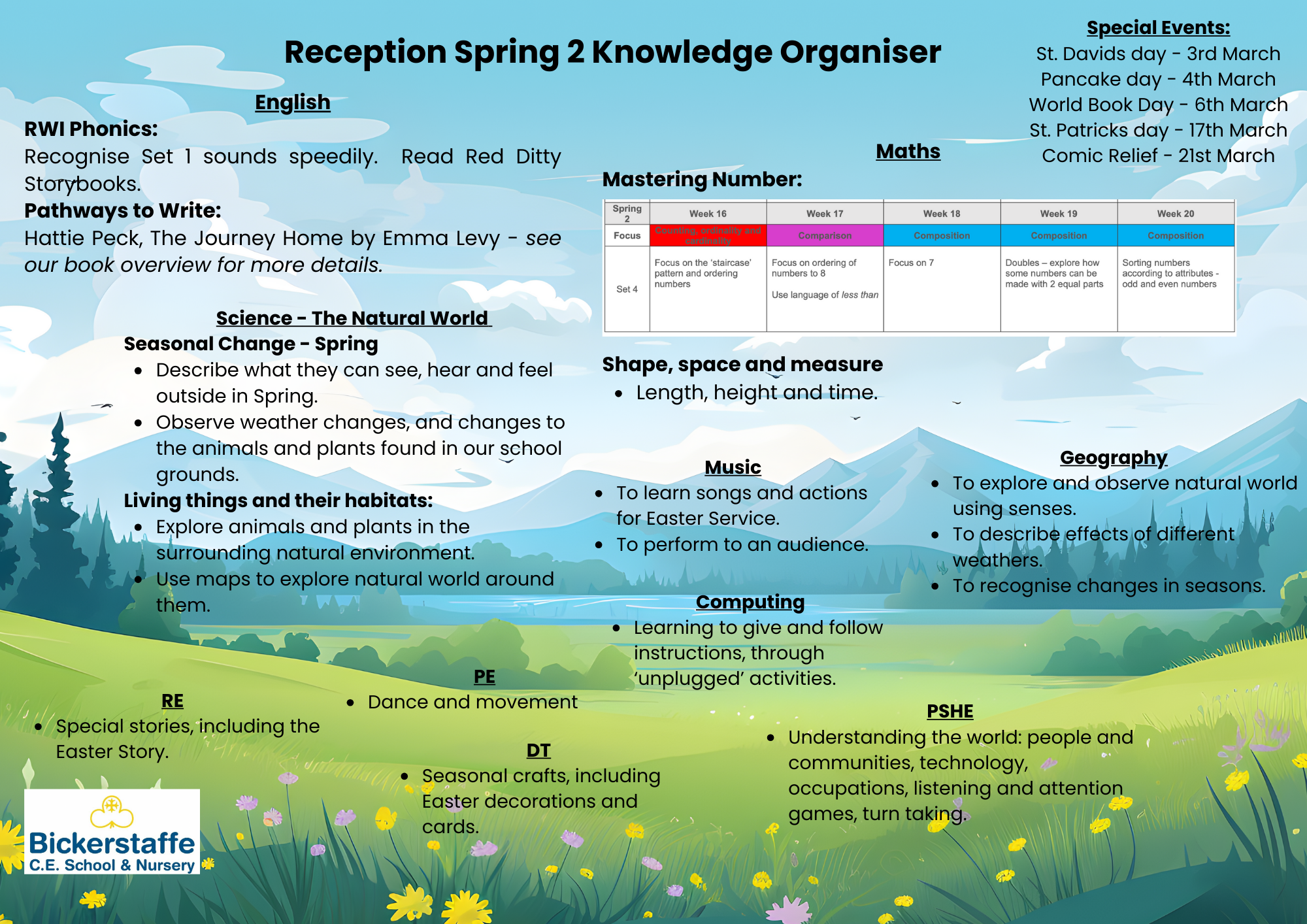
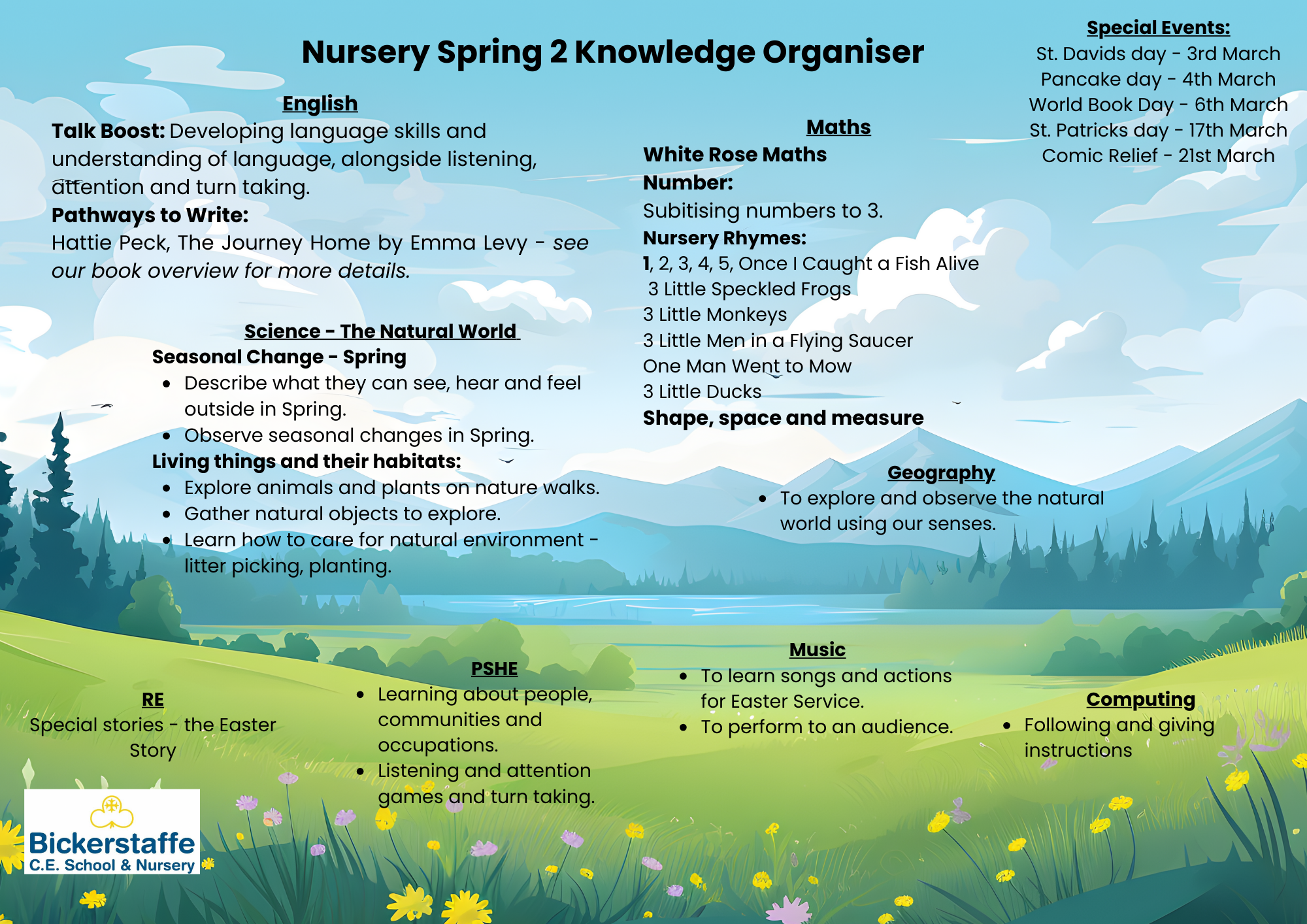
This half-term our theme is animals and plants in spring.
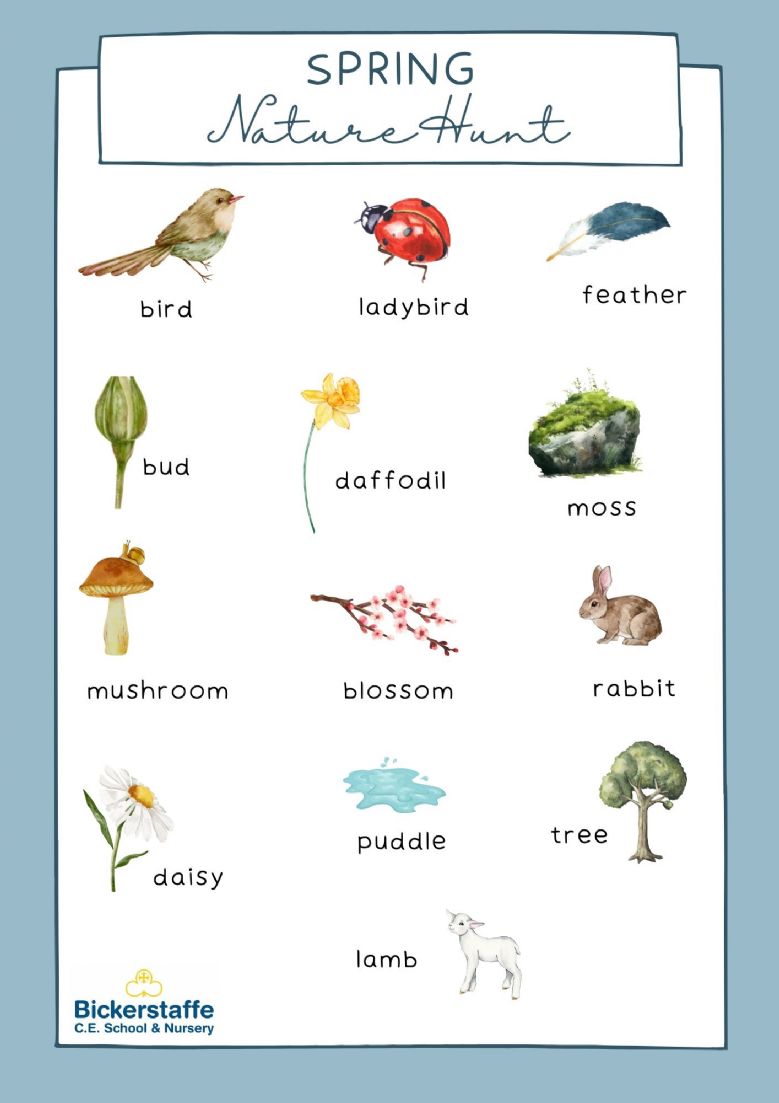
This half-term our focus text is, 'Hattie Peck- The Journey Home'.
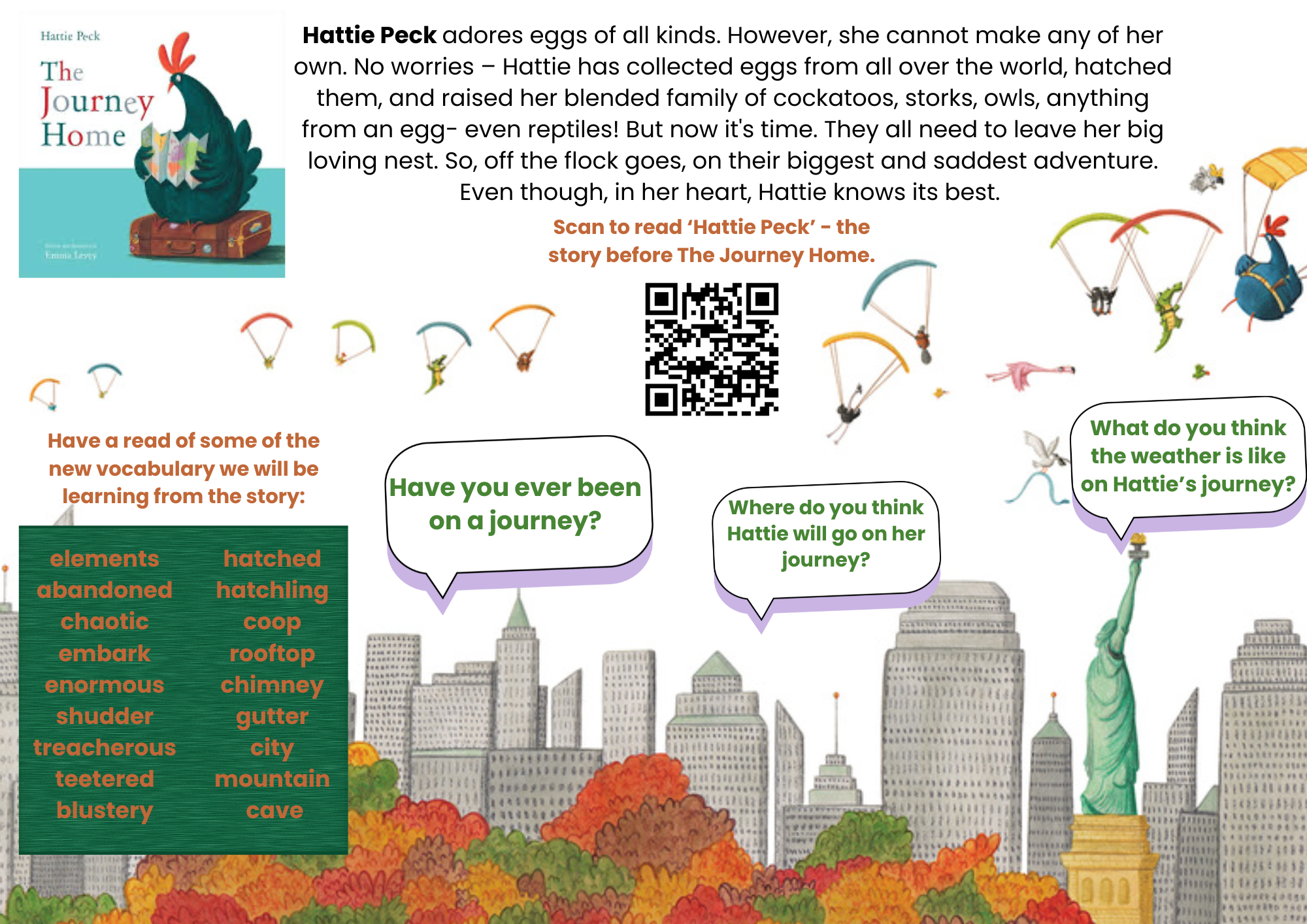
Spring 1
This half-term our focus text is, 'I'm going to eat this ANT', by Chris Naylor-Ballesteros.
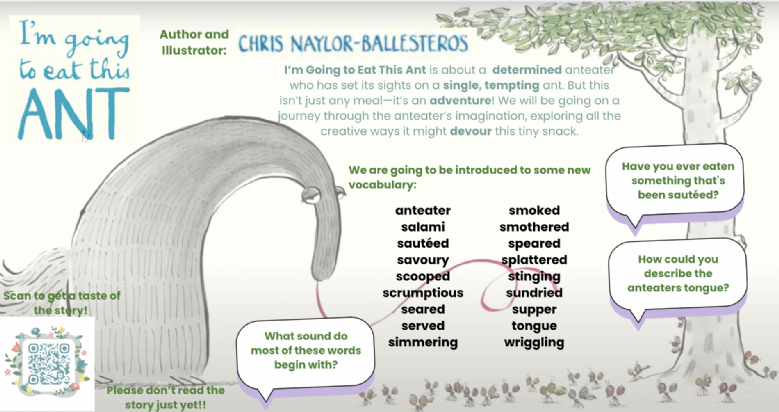
Our theme for this half-term is Minibeast.
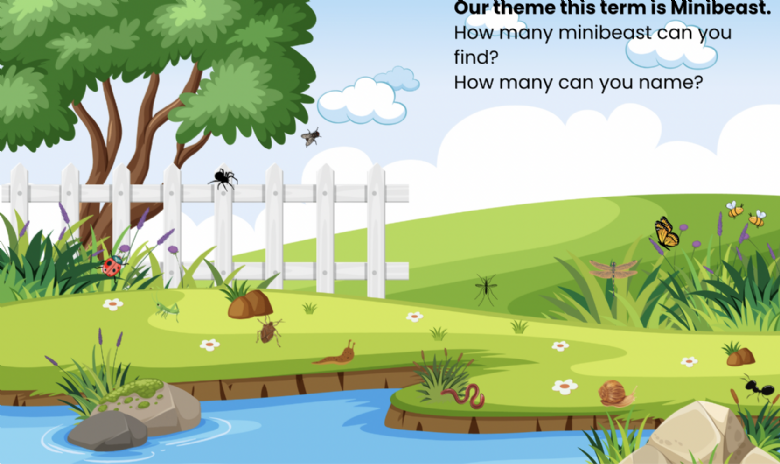
Our Knowledge Organisers for Spring 1:
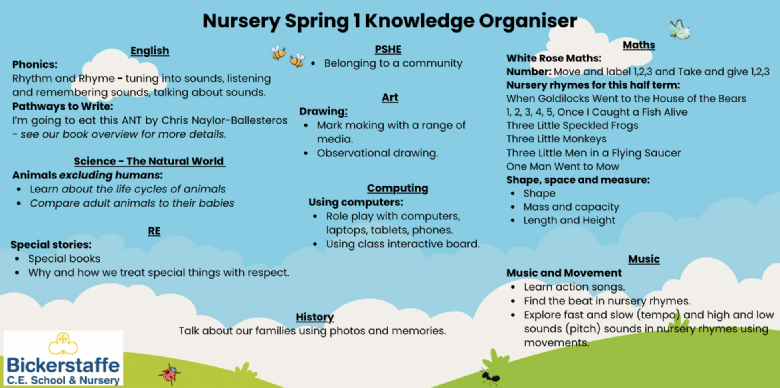
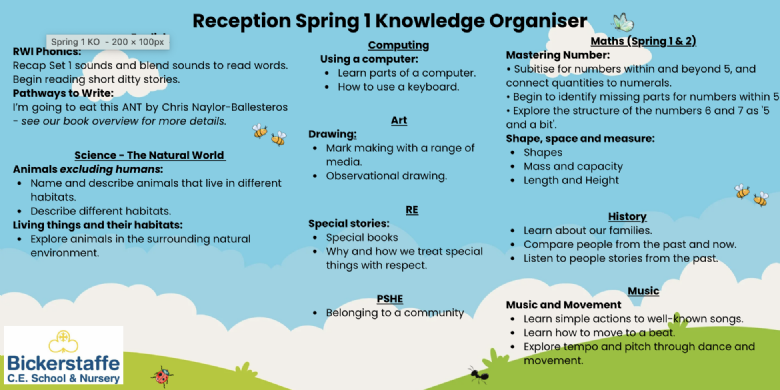
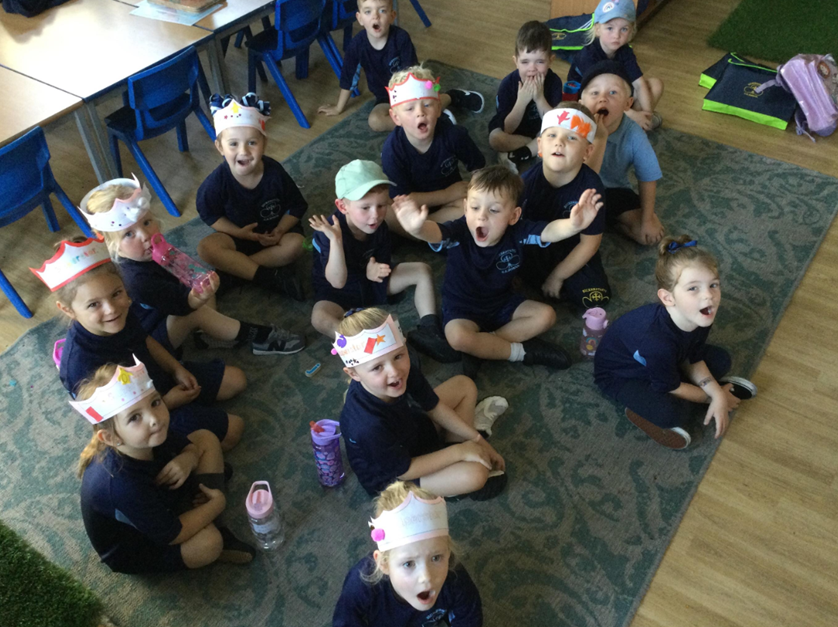
Maths
Reception maths overview:
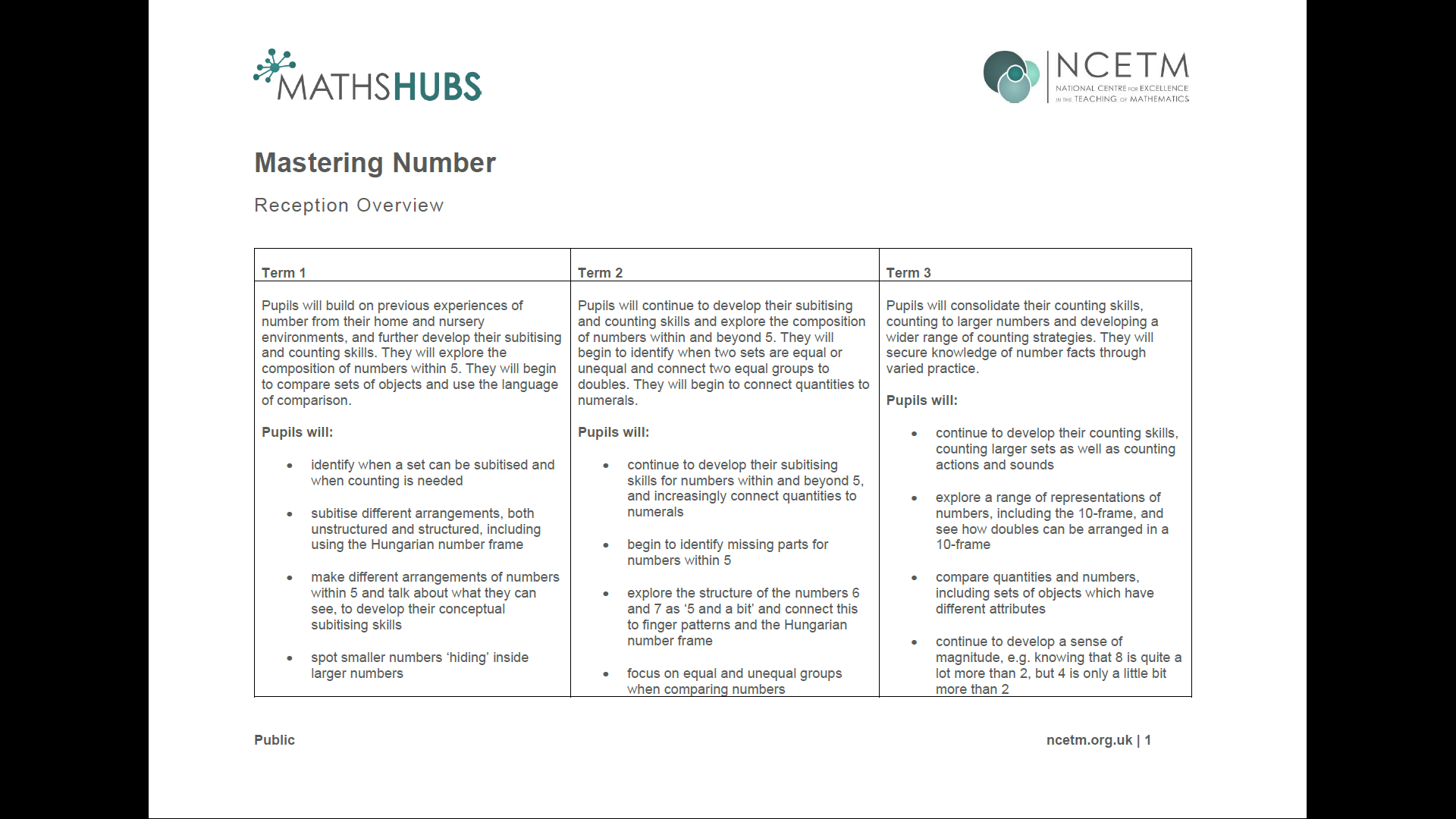
Nursery maths overview:
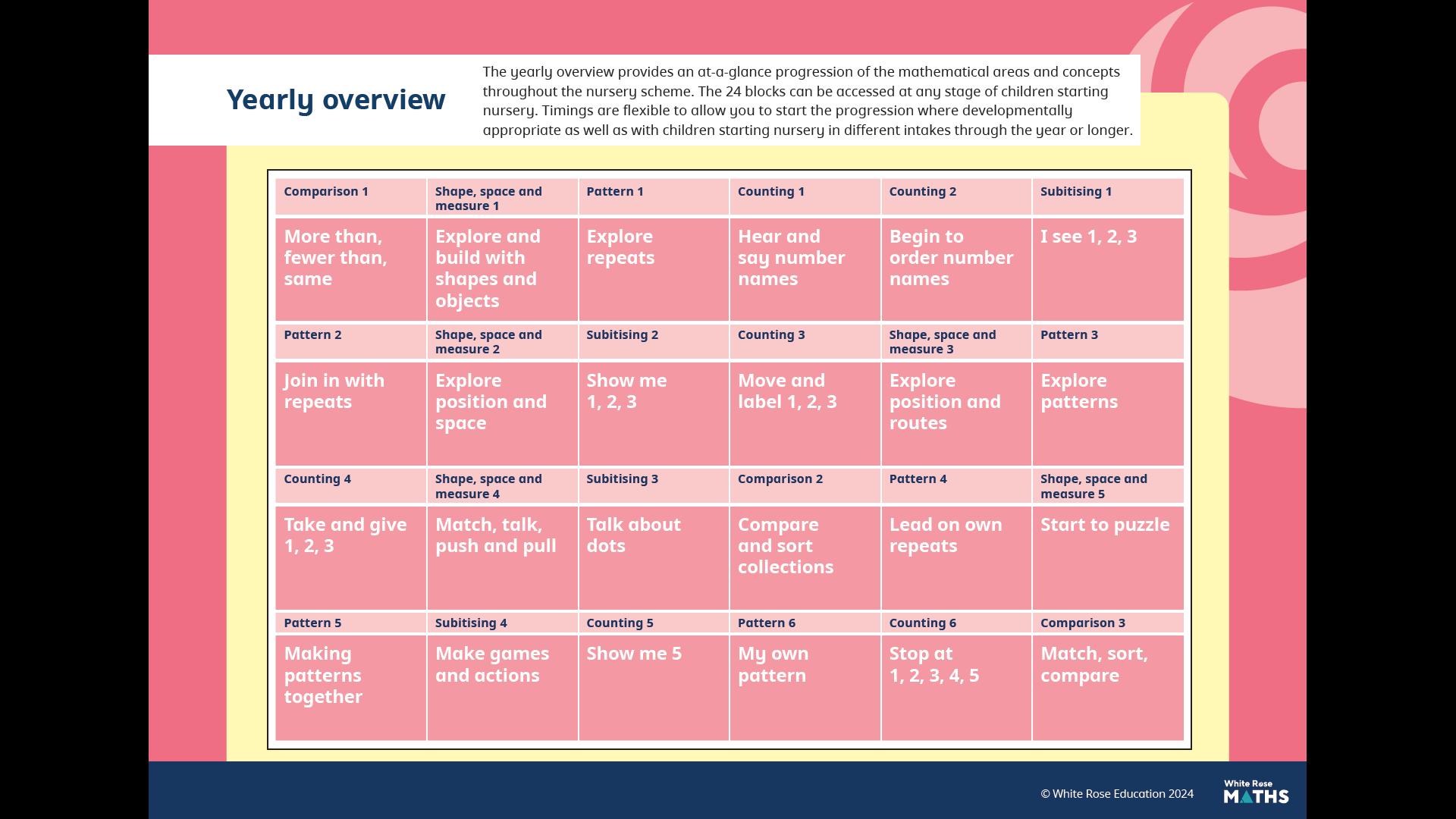
Phonics
 Learning to read is the most important thing your child will learn at our school. Everything else depends on it, so we put as much energy as we possibly can into making sure that every single child learns to read as quickly as possible.
Learning to read is the most important thing your child will learn at our school. Everything else depends on it, so we put as much energy as we possibly can into making sure that every single child learns to read as quickly as possible.
We want your child to love reading – and to want to read for themselves. This is why we put our efforts into making sure they develop a love of books as well as simply learning to read.
If you would like to find out more about RWI and hope to support your child at home when reading, please have a look at the links below:
Helpful videos for Parents and Carers
10 things to think about when you read to your child
Reception
Set 2 Special Friends (Summer term)
Here are some video links your child can watch at home to help learn the first 6 Set 2 Special Friends (two letters that make one sound or 3 letters that make one sound).
Set 1 Special Friends
Here are some video links your child can watch at home to help learn Set 1 Special Friends (two letters that make one sound).
Red Words
Word Time - Blending to read
Fred Games
Here are some videos to support oral blending. These videos are suitable for our nursery children too.
Finally, a fantastic video that just sums up how special working in the Early Years is:
Thank you,
Mrs Stubbs and Mrs Crook

